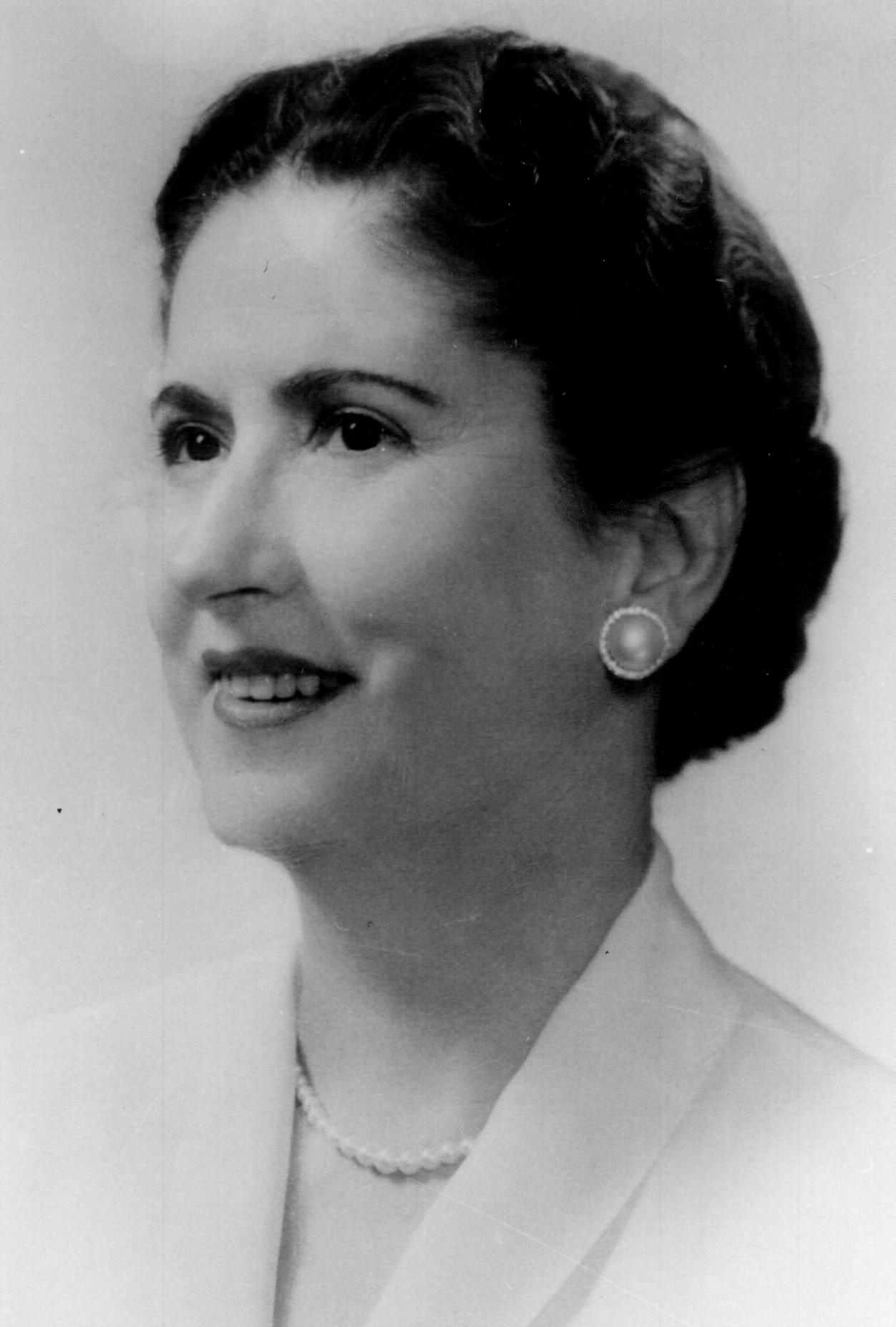Mary L. Nock
1903-1987

Mary Layfield Nock was born into a family possessing a keen interest in politics. Her birthplace, Quantico, Maryland, was known as a "hotbed of political activity," where during her childhood the townsmen would gather at the Quantico Hotel to talk politics. Women were not allowed to vote at this point in history, nor were they permitted to discuss politics in public.
Mary attended her first political meeting during Al Smith's campaign for the presidency in 1920, the same year women earned the right to vote. She attended the Beacom Business College in Salisbury and upon graduating worked as a secretary to David J. Ward, a Wicomico county businessman. She accompanied him to Annapolis in 1932 after his election victory to the State Senate. Mary learned a great deal from Ward about government as a result of her eagerness to learn and his ability to teach.
In 1939, Congressman Goldsborough was appointed to the federal bench and the Democratic Central Committee nominated Senator Ward as their candidate. This gave Mary her first experience in active campaigning, and she enjoyed it a great deal. Ward was victorious once again, and this time Mary was headed to Washington as his personal assistant. Throughout her service both in Annapolis and in Washington, she continued to remain involved in local civic affairs.
When Ward lost his re-election in 1944, Mary returned to Salisbury to become a homemaker and continue with her civic activities. She worked on the Salvation Army Fund Drive and fundraising efforts for the Wicomico County Youth and Civic Center but found she missed the political arena. Her husband, Garland, suggested in 1945 that she make an attempt for the State Legislature. In 1947 Mary found herself headed for Annapolis, this time as the first elected woman from Wicomico County to serve in the State Legislature. Little did she realize that her career in government would endure for the next forty years. At times the road was paved with bigotry and discrimination; one candidate ran a "smear campaign" against Mary, stating women had no place in politics because "all the important decisions are carried on in the men's room at the State House." Overcoming her adversaries, Mary went on to earn the distinction of having served longer than any other woman in the history of the Maryland Legislature.
During her first term she was elected co-chair of the Wicomico County Delegation. From the beginning Mary voiced her support of legislation that would protect individuals from injustices. She endorsed the controversial Teacher Salary Bill, the Jury Bill, which would allow women to serve on juries, and the Equal Rights Amendment, leading to Maryland becoming one of the first states to ratify the ERA. In addition, Mary was a strong supporter of public and higher education. Her service on powerful House and Senate Finance Committees throughout her years in elected office enabled her to improve opportunities for Marylanders.
She was the first woman appointed as President Pro-Tem of the Senate, the second woman to be elected to the Senate and the only woman in the Senate from 1955 to 1961. In addition, she served as an important member of the Legislative Council and the Capital Budget Committees.She worked for all citizens but was especially dedicated to removing discriminatory barriers that kept women from advancing in their professions, as well as in their personal lives. Her work on behalf of women and human rights issues earned her the heartfelt appreciation of women throughout Maryland.
For 28 years in the General Assembly, Mary played a vital role in Grafting laws that had and still have far-reaching effects on Marylanders. She had the distinction of serving under five governors and never having her legislation vetoed by any governor. Governor Tawes wrote of Mary, "I know of no one who has ever represented the people of the Eastern Shore with more devotion to the responsibilities of representative government, who is more highly principled, or who was more loyal to the democratic process than Senator Mary Nock...she earned the respect of her colleagues and her constituency, with hard work and dedication to duty."
Mary certainly proved the major decisions were not "made in the men's room in the State House."
